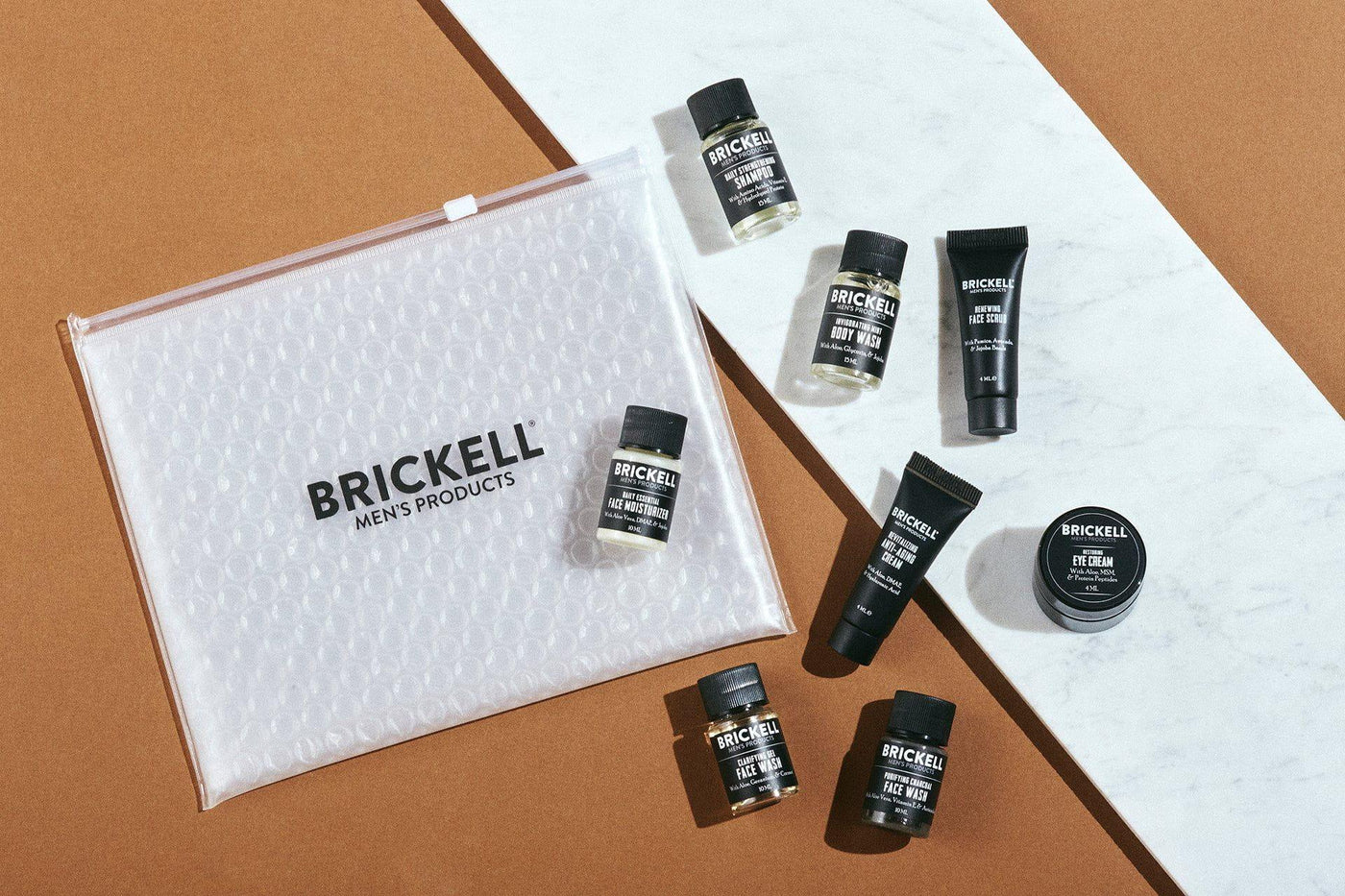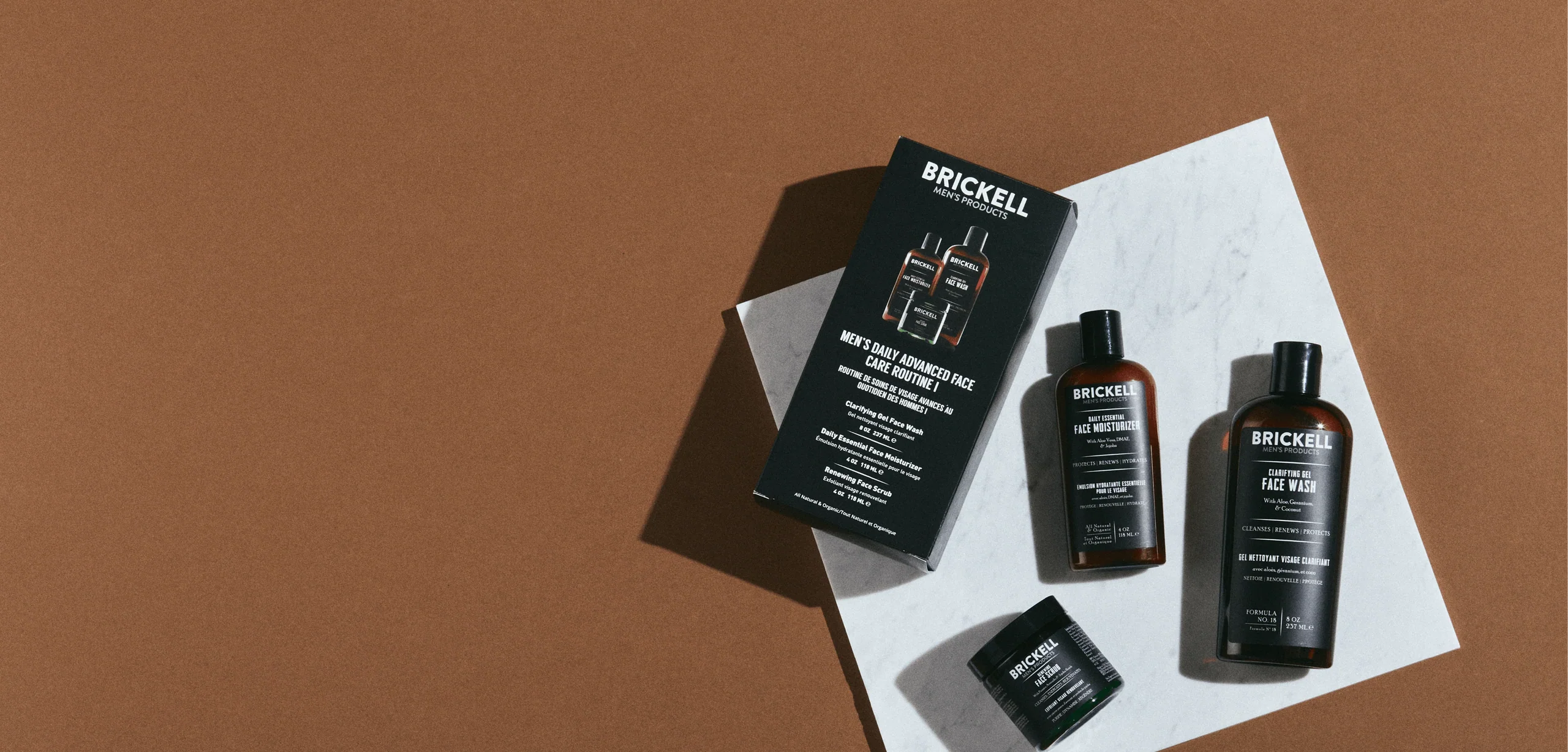The Grooming Manual
How to Deal with Oily Nose: Tips for Men

Dealing with an oily nose can be frustrating for many men, especially since men have oilier skin than women. This can impact confidence and comfort throughout the day.
Learn practical tips and oily nose treatments to help you manage oily skin. From adopting simple habits and choosing the right products to balancing your diet and managing stress, these strategies are designed to control oil production without compromising your skin's health.
How to Prevent an Oily Nose
Establishing a consistent skincare routine is essential for managing an oily nose. Be careful using products that are too harsh or unsuitable for your skin type, as they can strip the skin of its natural oils. It will not cause dry skin, only produce even more oil.
Cleansing
- Use a gentle cleanser engineered for oily or combination skin.
- Look for natural ingredients like salicylic acid, which help to control oil production and prevent acne breakouts.
- Cleanse your face twice daily, once in the morning and once before bed.
Exfoliating
- Exfoliate your nose 2 to 3 times weekly to remove dead skin cells, unclog pores, and prevent clogged nose pores.
- Opt for exfoliants containing alpha hydroxy acids (AHAs) or beta hydroxy acids (BHAs).
Toning
- Apply a toner after cleansing to help balance your skin’s pH levels and remove any residual impurities.
- Choose an alcohol-free toner with ingredients such as witch hazel, known for its oil-controlling properties.
Moisturizing
- Even an oily nose needs hydration. Use a lightweight moisturizer to keep your skin balanced.
- Look for natural ingredients that won't clog your pores, such as aloe vera and jojoba oil.
Sun Protection
- Apply a broad-spectrum sunscreen every morning, even on cloudy days.
- Opt for a non-greasy formula to help control shine throughout the day.
Additional Tips
- Add a face mask into your routine once a week to deep-clean your nose pores and tighten the skin.
- Use blotting papers during the day to manage oiliness without disrupting your skincare routine.

When to Wash Your Face
Knowing how often to wash your face is essential in managing an oily nose. By adhering to these guidelines, you can be better prepared without causing additional skin issues.
Cleansing Twice Daily
For most men with oily skin or combination skin, washing their face twice a day, once in the morning and once before bed, is generally recommended. This helps remove excess oil, dirt, and impurities that accumulate throughout the day and night.
Post-Workout Cleansing
If you engage in physical activities or workouts, it’s essential to cleanse your face afterward. Sweat can mix with oil and clog pores, leading to breakouts and increased oiliness.
Choosing the Right Cleanser
Opt for a natural cleanser engineered for oily skin or combination skin. Look for ingredients like salicylic acid and tea tree oil, which can help control oil production without over-drying your skin.
Avoid Over-Washing
Washing your face more than twice daily can strip your skin’s natural oil, prompting it to produce even more oil to compensate. This can create a vicious cycle of increased sebum production.
Water Temperature
Use lukewarm water when washing your face. Hot water can strip your skin of essential oils, while cold water may not effectively remove oil and dirt.
How to Manage Excess Oil
Managing excess oil throughout the day can be challenging, especially when busy with work or other activities. These practical tips help you keep your oiliness in check while on the go.
Opt for Oil-Free Products
Use oil-free moisturizers with SPF, as they are less likely to clog pores. This can help prevent acne and blackheads caused by excess oil.
Use Blotting Papers
Blotting papers are a quick and discreet oily nose remedy. Keep a pack in your desk drawer, car, or bag for easy access.
Keep Facial Wipes
Keep a pack of oil-control facial wipes handy for a quick refresh. These wipes can help remove excess oil and impurities without water.
Secure a Skincare Kit
Prepare a small kit with essential items like blotting papers and facial wipes. Keep this kit in your bag or car for quick throughout the day.

How to Balance Your Diet
Diet can significantly impact sebum production, first appearing on your oily nose. Certain foods can either worsen or help manage oiliness. A balanced diet helps maintain your skin and overall health.
Eat Less:
High Glycemic Index Foods
Foods with a high glycemic index, such as white bread, sugary snacks, and sodas, can spike insulin levels, which may lead to oilier skin.
Dairy Products
Some studies suggest that dairy products can increase sebum production and acne breakouts. If you notice a correlation, try reducing your milk, cheese, and yogurt intake to see if it makes a difference.
Fatty and Fried Foods
Diets high in unhealthy fats and fried foods can increase sebum production. Instead, choose healthier fats in avocados, nuts, and olive oil.
Eat More:
Omega-3 Fatty Acids
Omega-3 fatty acids, found in fish like salmon and mackerel, flaxseeds and walnuts, have anti-inflammatory properties that can help regulate oil production.
Hydration
Staying well-hydrated is crucial for overall skin health. Dehydration can lead to overcompensation by the oil glands, resulting in an oily nose. Aim to drink at least eight glasses of water a day.
Foods with Antioxidants
Foods rich in antioxidants, such as berries, green tea, and dark chocolate, can help combat oxidative stress, which may reduce oiliness. Including these in your diet can support healthier skin.
Pay careful attention to your food intake and make mindful choices to support oily nose treatments better.
How to Lower Stress to Avoid Oily Skin
Stress can significantly impact your skin’s oil production. When you’re stressed, your body releases cortisol, a hormone that can increase the activity of sebaceous glands, leading to oilier skin. Managing stress effectively can help mitigate this response.
Regular Exercise
Physical activity can help lower cortisol levels and improve overall skin health. Aim for at least 30 minutes of moderate exercise most days of the week.
Mindfulness Meditation
Practices such as mindfulness meditation can help reduce stress and its impact on your skin. Even a few minutes of deep breathing exercises daily can make a difference.
Get Enough Sleep
Quality sleep is crucial for stress management. Aim for 7 to 9 hours of sleep per night to help regulate cortisol levels and maintain healthy skin.
Healthy Diet
A balanced diet rich in fruits, vegetables, lean proteins, and whole grains can help manage stress and improve skin health. Avoid excessive caffeine and sugar, which can worsen stress and stimulate your sebaceous glands.
Adapting these stress management techniques into your daily routine can help you control your nose's oiliness and improve overall skin health.

Other Factors that Contribute to an Oily Nose
Several factors can contribute to an oily nose. Learning them can help you alter your skincare routine and lifestyle choices to manage it better.
Weather and Climate
- Humidity: High humidity levels can cause the skin to produce more oil.
- Temperature: Hot weather can lead to increased sweating and an oily nose.
- Seasonal Changes: Transitioning between seasons can affect skin’s oil balance, often making it oilier in the summer and drier in the winter.
Skin Type
- Oily Skin: Naturally produces more sebum, leading to a shinier appearance.
- Combination Skin: Often has an oily T-zone (forehead, nose, and chin), while other areas may be dry or normal.
Genetics
- Family History: If being oily runs in your family, you are more likely to experience it.
- Skin Structure: Genetic factors can influence the size and activity of sebaceous glands.
Understanding the root causes of excess oil production and adopting effective skincare strategies can make a significant difference.
Overcome Your Oily Nose
Understanding the underlying causes, establishing a consistent skincare routine, and making mindful lifestyle choices can significantly reduce excess oil and maintain a shine-free complexion.
Dealing with an oily nose may seem challenging, but it can be effectively controlled with the proper knowledge and skincare products.
Brickell makes it easy for you by preparing a 3-step Men’s Daily Face Cleanse Routine Kit engineered explicitly for oily skin.

